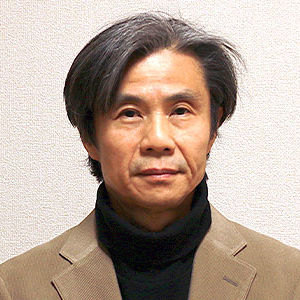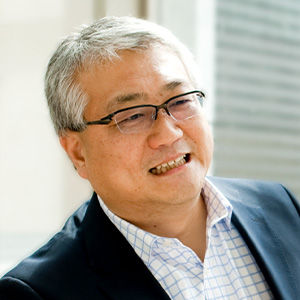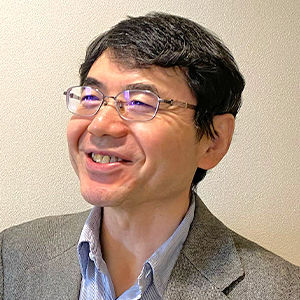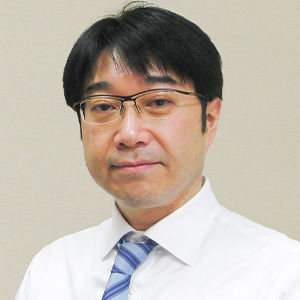Program

Moonshot Goal9Realization of a mentally healthy and dynamic society by increasing peace of mind and vitality by 2050.
Program Director (PD)KUMAGAI SeijiProfessor, Institute for the Future of Human Society, Kyoto University
Outline
In recent years, social issues related to our mental states have become increasingly severe. The key to creating a mentally healthy and dynamic society is to develop a comprehensive understanding of mental states, and kind interpersonal and intergroup communication that will lead us in a more mutually beneficial direction.
Our R&D program aims to realize increased peace of mind and vitality by creating technology to realize “understanding of individual mental states and transitions” and "mental health support in terms of interpersonal and intergroup communication” so as to increase peace of mind and vitality.
A Vision of Society in 2050 (Illustrated Guide)
What might the future look like in 2050 if Goal 9 is realized? An illustrated guide.
Message from PD
We aim to realize a mentally healthy and dynamic society through development of technology that provides peace of mind and vitality. I believe it is necessary to discover the mechanisms behind our mental states, and use this practical knowledge for technology that will generate positive mental state transitions for users based on individual preferences. We will promote R&D using comprehensive knowledge gained by the fusion of different fields such as natural sciences, social sciences and humanities. Applying the expertise of enthusiastic researchers gathered from all over the world, together we will achieve our Moonshot Goal.
ELSI for Goal 9
R&D Projects
Selected in FY2021
Selected in FY2023
Past Project
| Project Manager | HASIDA Koiti Group director, Center for Advanced Intelligence Program, RIKEN |
|---|---|
| Outline | This project aims to defend freedom of mind and promote value co-creation to strengthen both democracy and economic performance. Currently, centralized AI (CAI) and the attention economy threaten freedom of mind and democracy, and inhibit the creation of value from personal data (PD). This problem can be solved through decentralized management of PD, by which each individual's PD is fully utilized only by their personal AI (PAI). We will demonstrate that PAI creates much higher value than CAI, and will promote the replacement of CAI with PAI along with its democratic governance. We will also assist people to enhance the authenticity and diversity of information they utilize. |
| Project Manager | KIKUCHI Mitsuru Professor, Graduate School of Medical Sciences, Kanazawa University |
|---|---|
| Outline | This project aims to realize an environment where everyone can grow up keeping their innate curiosity, thereby creating a society filled with active motivation and originality. Self-esteem damage in childhood can cause resilience to decline in later life, but by effectively preventing this type of problem we can realize a dynamic future society rich in intellectual curiosity. Specifically, we will use brain imaging technology to analyze children's brain characteristics, visualize the effects of interventions through optimized artistic activities, and implement them in society in collaboration with local governments. |
| Project Manager | KIDA Satoshi Professor, Graduate School of Agriculture and Life Sciences, The University of Tokyo |
|---|---|
| Outline | This project aims to elucidate the mechanisms by which favorite foods induce positive emotions such as pleasure and empathy with others, and the mechanisms by which food values are changed depending on experience. Though bad eating habits can themselves be the cause of disease, stress and ill-health can also result when trying to a convert to a healthier diet. Therefore we will develop technologies to improve food preference and make it enjoyable to eat healthy food, using a rodent model from a neuroscientific viewpoint, and try to achieve the goal of "increasing mental comfort and vitality" using food as a tool. |
| Project Manager | TAKUMI Toru Professor, School of Medicine, Kobe University |
|---|---|
| Outline | This project aims to visualize mice's brain functional network dynamics in action by developing a virtual reality (VR) system. We will quantify the "state of mind" of mice communicating with each other in a social environment as changes in the functional brain network. Furthermore, we will develop a technology for optical manipulation of the functional brain network using optogenetics to artificially induce changes in the "mental" state and clarify how the functional brain network responds to changes in the ”mental" state and changes in behavior. Research on mice that allows direct manipulation of the brain will help develop a fundamental technology for elucidating the human mind. |
| Project Manager | NAKAMURA Toru Institute for Datability Science, Osaka University, Specially Appointed Professor |
|---|---|
| Outline | This project aims to construct an objective and universal emotional state space across species by integrating AI technology with Internet of Things (IoT)-based measurements of biological signals in daily life. Furthermore, the project will develop a method to evaluate well-being and ill-being states based on the dynamics of state transitions in the constructed emotional space. |
| Project Manager | MIYAZAKI Katsuhiko Senior Staff Scientist, Neural Computation Unit, Okinawa Institute of Science and Technology Graduate University |
|---|---|
| Outline | This project aims to examine what kind of difference will occur in the serotonin neural network, which has been shown to play a role in regulating patience for future rewards, when mice perform the same behavior but the purpose of the behavior is different for "attainment of reward" or "avoidance of punishment". We hypothesize that serotonin works to regulate "optimism / pessimism" toward achieving the goal and we will examine the serotonin neural network by neural recording and neural manipulation of task performing mice. By clarifying the neural mechanism of “the optimism that creates patience” or “the pessimism that leads to giving up”, we aim to realize a society in which people can improve their "ability to overcome the difficulties of life" and "vitality of the mind". |
| Project Manager | SHINODA Hiroyuki Professor, Graduate School of Frontier Sciences, The University of Tokyo |
|---|---|
| Outline |
This project focuses on a haptic partner based on noncontact tactile reproduction technology that can replicate various tactile sensations in a wide skin area. The haptic partner is an AI partner that interacts with children through tactile senses in addition to visual and auditory senses. It influences emotions including pleasantness and arousal, stabilizing the children's minds and enabling them to achieve the desired mental response. The haptic partner's appearance and tactile feel change according to each child's preference and situation, becoming the optimum companion for each child. |
| Project Manager | YAMAWAKI Shigeto Specially appointed professor, Director of Center for Brain, Mind and KANSEI Sciences Research, Hiroshima University |
|---|---|
| Outline | This project aims to innovate in: 1) Awareness Music based on neuroscientific evidence to promote "awareness of one's own and others' hearts" by music and ultrasonic sounds; 2) awareness enhancing technology by Awareness Music using a wearable KANSEI visualization device; 3) technology for improving positive KANSEI such as healing, being moved and sense of unity by Neuro-Bio Feedback; 4) KANSEI communication technology that enhances empathy. We also aim to create new liberal arts through this transdisciplinary research collaboration. The "mental capital" strengthening method by integrating these technologies will be implemented in local communities, aiming to realize a peaceful society through mutual understanding and empathy - in which individuals can spend an active and happy life in the metaverse era of 2050. |
Breaking the intergenerational chain of child maltreatment through revolutionary diagnostics and positive intervention.
| Project Manager | TOMODA Akemi Director and Professor, Research Center for Child Mental Development, University of Fukui |
|---|---|
| Outline | This project aims to develop and implement breakthrough technologies to realize a society with zero childhood maltreatment and promote sound mental health for all.
These technologies will assist parents in nurturing their children and prevent maltreatment through early detection and positive interventions. |
Advisors
Click here to see the list of advisors
| INOKUCHI Kaoru* | Distinguished Professor, Department of Biochemistry, Graduate School of Medicine and Pharmaceutical Sciences, University of Toyama |
|---|---|
| NAGATA Tomoya* | Managing Partner, D3 LLC |
| NISHIDA Shin'ya* | Professor, Graduate School of Informatics, Kyoto University |
| MORITA Akira* | Professor Emeritus, University of Tokyo |
| ENDO Kaoru | Professor Emeritus, Gakushuin University |
| OSAKA Naoyuki | Professor Emeritus, Kyoto University |
| SAKURAI Takeshi | Professor, Faculty of Medicine, University of Tsukuba |
| DOYA Kenji | Professor, Neural Computation Unit, Okinawa Institute of Science and Technology |
| HAYASHI-TAKAGI Akiko | Team Leader, Center for Brain Science, RIKEN |
| HORI Koichi | Executive Director, National Institutes for the Humanities |
| MIURA Asako | Professor, Graduate School of Human Sciences, Osaka University |
| MURAI Toshiya | Professor, Graduate School of Medicine, Kyoto University |
| YOKOSAWA Kazuhiko | Distinguished Professor, Economics and Informatics Department, Japan International University |
*Sub Program Director
Goal 9 News
Contact
Goal 9 Secretariat
Department of Moonshot Research and Development Program, Japan Science and Technology Agency
e-mail moonshot-goal9







